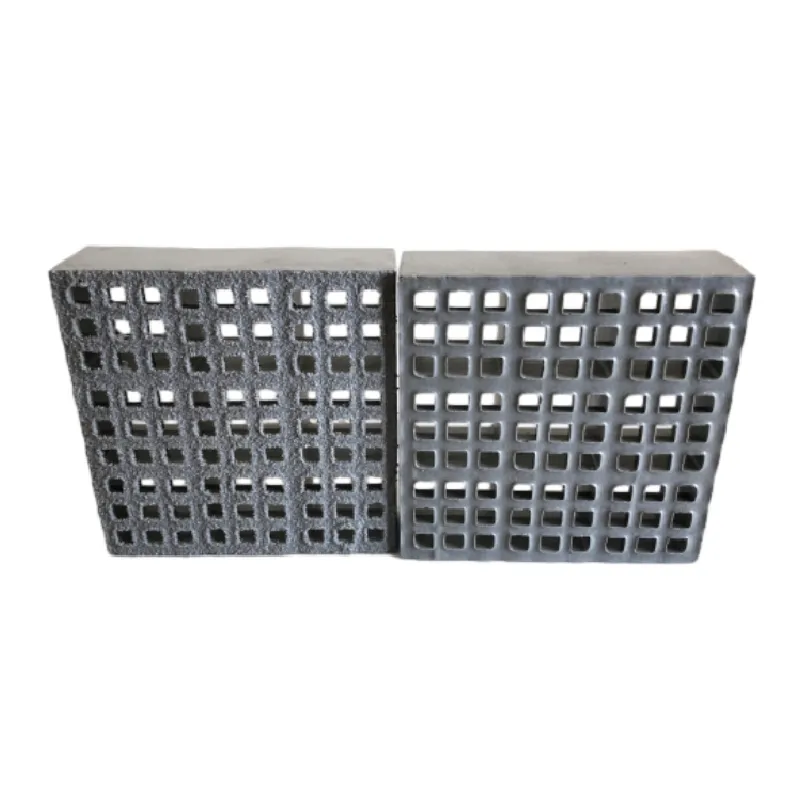loading...
- No. 9, Xingyuan South Street, Dongwaihuan Road, Zaoqiang County, Hengshui, Hebei, China
- admin@zjcomposites.com
- +86 15097380338
- Welcome to visit our website!
Durable Fiberglass Grating Solutions for Safe and Efficient Industrial Applications
Moulded Fibreglass Grating Versatility and Advantages in Modern Applications
Moulded fibreglass grating is revolutionizing the way industries tackle flooring and platform needs. With its unique properties, this material provides a reliable, durable, and versatile alternative to traditional materials like steel or wood. In this article, we will explore the key characteristics, benefits, and applications of moulded fibreglass grating, and why it has become an increasingly popular choice in various sectors.
What is Moulded Fibreglass Grating?
Moulded fibreglass grating, often referred to as fiberglass reinforced plastic (FRP) grating, is produced by combining fibreglass and resin through a moulding process. The resulting panels are lightweight, yet they offer high strength and corrosion resistance. The manufacturing process allows for a variety of designs and configurations, making it suitable for a wide range of applications.
Advantages of Moulded Fibreglass Grating
1. Corrosion Resistance One of the most significant benefits of moulded fibreglass grating is its resistance to corrosion from chemicals, moisture, and environmental elements. This durability makes it an ideal choice for industries such as wastewater treatment, chemical processing, and marine applications.
2. Lightweight Despite its strength, moulded fibreglass grating is considerably lighter than traditional metal grating. This lightweight property not only simplifies transportation and installation but also reduces the overall load on supporting structures.
3. Non-Slip Surface Safety is paramount in industries where grating is used. Moulded fibreglass grating can be manufactured with a textured surface that provides excellent slip resistance, reducing the risk of accidents in wet or hazardous environments.
4. Low Maintenance Unlike metal grating that can rust and require frequent maintenance, moulded fibreglass grating is virtually maintenance-free. Its resistance to corrosion, rot, and wear ensures longevity, reducing the overall lifecycle costs.
5. Customizable Moulded fibreglass grating can be tailored to specific requirements, including varying thicknesses, colours, and sizes. This customization allows businesses to optimize their flooring solutions for both functional and aesthetic needs.
moulded fibreglass grating

6. Fire Resistance Many grades of fibreglass grating are designed to be fire-resistant, making them suitable for use in environments where fire safety is a critical concern, such as oil and gas refineries.
Applications of Moulded Fibreglass Grating
Moulded fibreglass grating is used across numerous industries, illustrating its versatility
- Industrial Facilities Commonly seen in manufacturing plants, it provides flooring solutions for walkways, platforms, and access for machinery while handling heavy loads without compromising safety.
- Water Treatment Plants With its corrosion resistance, fibreglass grating is employed in areas that are constantly exposed to water and chemicals, allowing for efficient operations with minimal maintenance.
- Food Processing In facilities where hygiene is paramount, fibreglass grating offers a non-porous surface that resists bacteria and other contaminants, making it an appropriate choice for food production environments.
- Chemical Processing With its resilience to corrosive substances, this grating is commonly utilized in chemical plants, where traditional materials would deteriorate quickly.
- Marine Environments Moulded fibreglass grating is the go-to choice for docks, piers, and other marine applications due to its ability to withstand harsh saltwater conditions.
Conclusion
Moulded fibreglass grating has become a preferred solution across various industries due to its superior properties, including corrosion resistance, lightweight nature, and ease of maintenance. As industries continue to prioritize safety, sustainability, and cost-effectiveness, moulded fibreglass grating will likely play an increasingly important role in modern applications. By choosing fibreglass grating, companies can enhance their operational efficiency while ensuring a safe and reliable work environment, making it a worthwhile investment in the long run. As we move forward, the advancements in fibreglass technology will undoubtedly yield even more innovative applications, solidifying its place in the industrial landscape.
-
The Rise of FRP Profiles: Strong, Lightweight, and Built to LastNewsJul.14,2025
-
SMC Panel Tanks: A Modern Water Storage Solution for All EnvironmentsNewsJul.14,2025
-
GRP Grating: A Modern Solution for Safe and Durable Access SystemsNewsJul.14,2025
-
Galvanized Steel Water Tanks: Durable, Reliable, and Ready for UseNewsJul.14,2025
-
FRP Mini Mesh Grating: The Safer, Smarter Flooring SolutionNewsJul.14,2025
-
Exploring FRP Vessels: Durable Solutions for Modern Fluid HandlingNewsJul.14,2025
-
GRP Structures: The Future of Lightweight, High-Performance EngineeringNewsJun.20,2025
